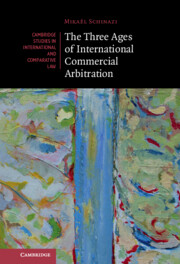The field of international arbitration has proven to be fertile in theoretical debates. This entry will identify and analyse three major debates on the theory of international arbitration, starting at different points in the past with their underlying concepts continuing to overlap to this date.
First, various authors have sought to explore the nature of arbitration – whether it is a jurisdictional phenomenon, akin to court proceedings, or a creature of contract, where the agreement of the parties would be of paramount importance.
The second debate focused on whether international arbitration has a strictly local existence or whether it is “delocalised,” allowing the arbitrator to factor in legal systems other than that of the “seat.”
This debate, in turn, led to a third debate on whether there is an arbitral legal order, independent of any individual jurisdiction taken in isolation but interacting as such with State legal orders.
The entry shows that an awareness of these debates is essential to understanding international arbitration not only as a field of practice, but also as raising key questions of a theoretical and philosophical nature.


